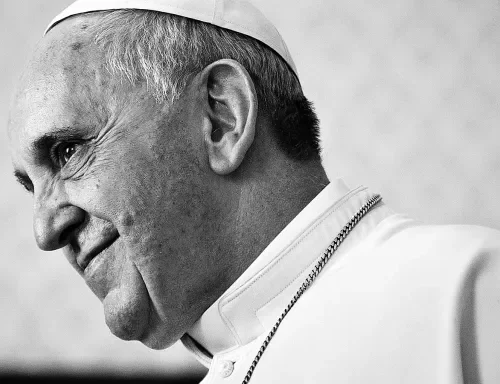Pope Francis has undoubtedly changed the image of the Catholic Church, we all hope for the better. He hasn’t really said anything new, he has phrased it more humanely. I recently watch the documentary The Francis Effect, by Light and Salt productions where is evident how the church is changing under the leadership and vision of Pope Francis. When it comes to leadership and the Pope, many present their observations: Forbes has 5 very interesting, Bussines managers have come to 3 very practical, or in case you might need more lessons (8) from Pope Francis on how to be a good leader.
The Big Oxmox advised her not to do so, because there were thousands of bad Commas, wild Question Marks and devious Semikoli, but the Little Blind Text didn’t listen. She packed her seven versalia, put her initial into the belt and made herself on the way. When she reached the first hills of the Italic Mountains, she had a last view back on the skyline of her hometown Bookmarksgrove, the headline of Alphabet Village and the subline of her own road, the Line Lane. Pityful a rethoric question ran over her cheek, then she continued her way. On her way she met a copy.
The speech became popular, many commented: Washington Post, Harvard Bussines Review (Funny story, it only takes someone (Hamel) for Harvard (where you learn to be “successful” to pick up Pope Francis wisdom to become a trend). In any case, I went through all of them, and just can’t but see why we have to put side by side the positives and negatives. A catholic would say an examination of consciousness, a business leader would suggest a Leadership practices inventory. Whatever is your choice, take a look at what the Pope is saying and do your conscious inventory on your leadership religiously.
1) Feeling immortal, immune or indispensable. “A Curia that doesn’t criticize itself, that doesn’t update itself, that doesn’t seek to improve itself is a sick body.”
2) Working too hard. “Rest for those who have done their work is necessary, good and should be taken seriously.”
3) Becoming spiritually and mentally hardened. “It’s dangerous to lose that human sensibility that lets you cry with those who are crying, and celebrate those who are joyful.”
4) Planning too much. “Preparing things well is necessary, but don’t fall into the temptation of trying to close or direct the freedom of the Holy Spirit, which is bigger and more generous than any human plan.”
5) Working without coordination, like an orchestra that produces noise. “When the foot tells the hand, ‘I don’t need you’ or the hand tells the head, ‘I’m in charge.’”
6) Having ‘spiritual Alzheimer’s.’ “We see it in the people who have forgotten their encounter with the Lord … in those who depend completely on their here and now, on their passions, whims and manias, in those who build walls around themselves and become enslaved to the idols that they have built with their own hands.”
7) Being rivals or boastful. “When one’s appearance, the color of one’s vestments or honorific titles become the primary objective of life.”
8) Suffering from ‘existential schizophrenia.’ “It’s the sickness of those who live a double life, fruit of hypocrisy that is typical of mediocre and progressive spiritual emptiness that academic degrees cannot fill. It’s a sickness that often affects those who, abandoning pastoral service, limit themselves to bureaucratic work, losing contact with reality and concrete people.”
9) Committing the ‘terrorism of gossip.’ “It’s the sickness of cowardly people who, not having the courage to speak directly, talk behind people’s backs.”
10) Glorifying one’s bosses. “It’s the sickness of those who court their superiors, hoping for their benevolence. They are victims of careerism and opportunism, they honor people who aren’t God.”
11) Being indifferent to others. “When, out of jealousy or cunning, one finds joy in seeing another fall rather than helping him up and encouraging him.”
12) Having a ‘funeral face.’ “In reality, theatrical severity and sterile pessimism are often symptoms of fear and insecurity. The apostle must be polite, serene, enthusiastic and happy and transmit joy wherever he goes.”
13) Wanting more. “When the apostle tries to fill an existential emptiness in his heart by accumulating material goods, not because he needs them but because he’ll feel more secure.”
14) Forming ‘closed circles’ that seek to be stronger than the whole. “This sickness always starts with good intentions but as time goes by, it enslaves its members by becoming a cancer that threatens the harmony of the body and causes so much bad — scandals — especially to our younger brothers.”
15) Seeking worldly profit and showing off. “It’s the sickness of those who insatiably try to multiply their powers and to do so are capable of calumny, defamation and discrediting others, even in newspapers and magazines, naturally to show themselves as being more capable than others.”









